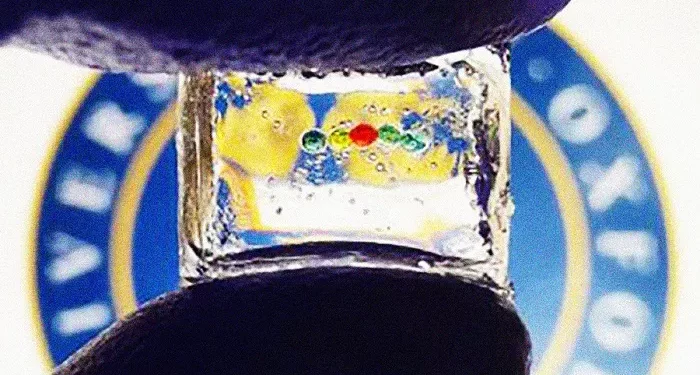Researchers from Oxford University have made a groundbreaking advancement in medical technology with the creation of the world’s smallest lithium bio-battery. This innovative power source, smaller than a grain of rice, is designed specifically for next-generation medical implants, paving the way for significant improvements in patient care and medical diagnostics.
Key Features of the Bio-Battery
The newly developed bio-battery is notable for several reasons:
Size and Composition: Made from biocompatible hydrogel droplets, the bio-battery is compact and lightweight, allowing it to fit within ultra-small medical devices without sacrificing power efficiency.
Light-Activated and Rechargeable: The battery can be recharged using light, enhancing its usability in clinical settings and providing a sustainable energy solution.
Biodegradability: Being biodegradable, the battery reduces the environmental impact and minimizes health risks associated with traditional batteries, such as inflammation or rejection by the body.
Addressing Limitations of Traditional Batteries
Traditional batteries used in medical devices often face challenges related to size, longevity, and biocompatibility. The Oxford bio-battery directly addresses these limitations, offering a powerful and compact solution. Its design allows for a sustained energy supply from a remarkably small volume, making it suitable for life-saving implants like neural stimulators, sensors, and pacemakers.
Dr. [Author’s Name], lead researcher at Oxford, stated, “This bio-battery represents a significant milestone in bioengineering. It not only enhances device performance but also aligns with our goal of minimizing invasiveness in medical procedures.”
Efficiency and Performance
The bio-battery utilizes lithium as its primary power source, known for its high energy density and compact form. This choice makes it ideal for applications in medical implants where reliability and size are crucial. Key aspects of its design include:
Maximized Energy Output: The architecture of the battery is optimized to ensure long-lasting performance, critical for devices requiring minimal maintenance or replacement.
Handling Energy Fluctuations: The bio-battery is engineered to manage energy fluctuations effectively, providing uninterrupted functionality for sensitive medical implants. This reliability is essential for patients who depend on these devices for their health and well-being.
Implications for Personalized Medicine
The potential of this bio-battery extends beyond mere power supply; it represents a significant leap forward in biocompatible engineering. As the demand for smaller, more advanced medical devices increases, this bio-battery could become instrumental in treating chronic health conditions by powering a variety of diagnostic and therapeutic tools within the body.
“This development is about more than just convenience for patients; it’s about enhancing patient outcomes and improving quality of life,” Dr. [Author’s Name] added.
Commitment to Sustainable Technology
In addition to its technical advantages, the bio-battery reflects broader trends in sustainable and ethical technology within the medical field. With its small size and biocompatible materials, it presents an environmentally conscious option for long-term medical solutions, aligning with the healthcare industry’s growing focus on reducing waste and minimizing environmental impact.
Conclusion
The Oxford University bio-battery stands at the forefront of innovation in medical technology, offering a powerful, sustainable, and biocompatible solution for implantable devices. As research continues and more applications are explored, this technology holds the potential to transform patient care, making medical treatments less invasive and more effective. With the promise of a healthier future, the bio-battery is poised to revolutionize the landscape of personalized medicine.
You Might Be Interested In:
























